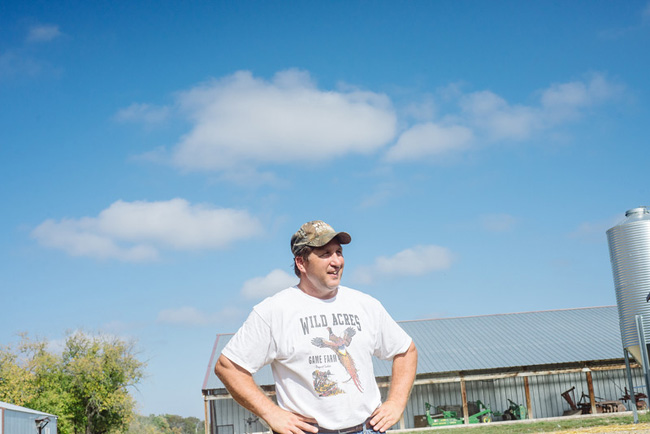
About the Farms in the Lens series: Much of what we write within these pages is focused on the restaurants of Minneapolis and St. Paul. But much of what we eat at those tables comes from farms around the state. With underwriting from Clancey’s Meats and Fish, we’ve set out to document a half dozen of these farms, focusing on the relationship between humans and animals. Check out our complete Farms in the Lens series, including: Wild Acres, Hidden Stream, Shepherd’s Way, Redhead Creamery, Twisted Suri Alpaca Ranch, and Paradox Farm.
Pheasant hunting has an air of romance to it — the combination of hunters, dogs, and prairie evokes a Victorian novel made real right here in Minnesota. Beyond Brainerd, off the highway, then onto a gravel road, past the hunters and a log cabin, a complex series of barns, buildings, and enclosures houses Wild Acres Hunting Club and Shooting Preserve, and also thousands of the area’s most treasured poultry birds.
Wild Acres supplies turkeys, ducks, chickens, and pheasants to many Twin Cities restaurants and shops. They control the whole process: They supply their own eggs, hatch the birds, raise them, process them on site, and deliver them.
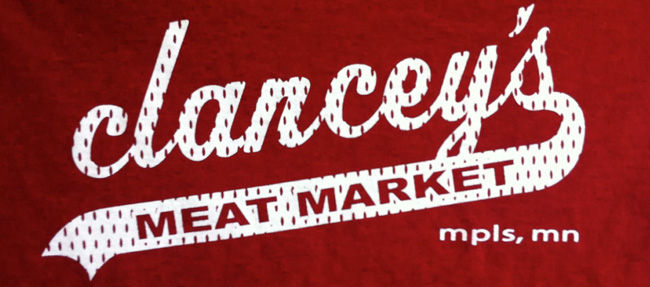 What began as a shooting preserve in 1978 became a pioneering farm that in the 1980s was among the first to sell free-range chickens. The farm has been a favorite of many food professionals, including Wolfgang Puck, Charlie Trotter, and numerous Twin Cities chefs.
What began as a shooting preserve in 1978 became a pioneering farm that in the 1980s was among the first to sell free-range chickens. The farm has been a favorite of many food professionals, including Wolfgang Puck, Charlie Trotter, and numerous Twin Cities chefs.
“Most of my chefs will say, ‘It’s not what we do with it; it’s a good product when it comes in,’” says Pat Ebnet, who owns and runs the bird-growing side of the business. (His mother, who is semiretired, runs the game preserve.) “Going to one of the restaurants and seeing the end preparation, that is the end benefit. That is the ‘wow,’ that these people really appreciate what I do,” says Ebnet.
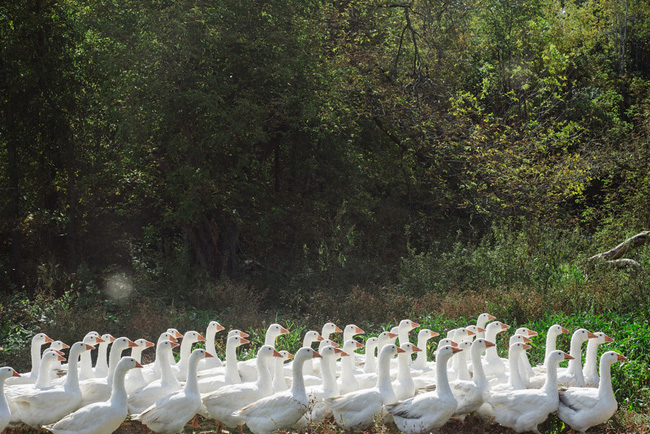
A single flock of geese roams around the property during the summer. Many are sold at Christmas time.
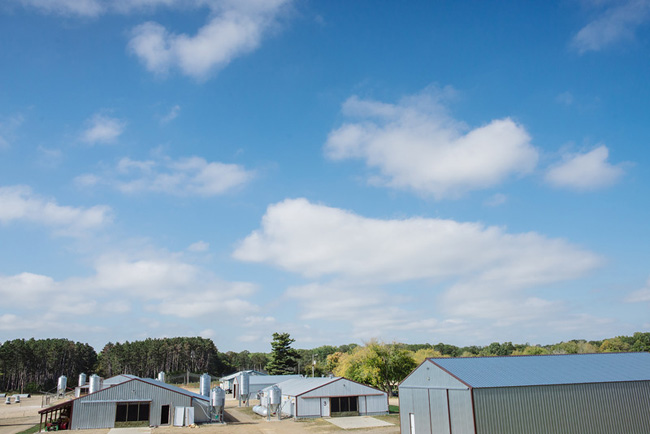
Wild Acres started as a shooting preserve and still has a shooting club. Since Ebnet took over, the poultry operation has vastly outpaced the shooting preserve. Pheasants are hatched twice a year and live outdoors. Ebnet processes about 4,000 pheasants each year for restaurants and markets including local coops and Clancey’s.
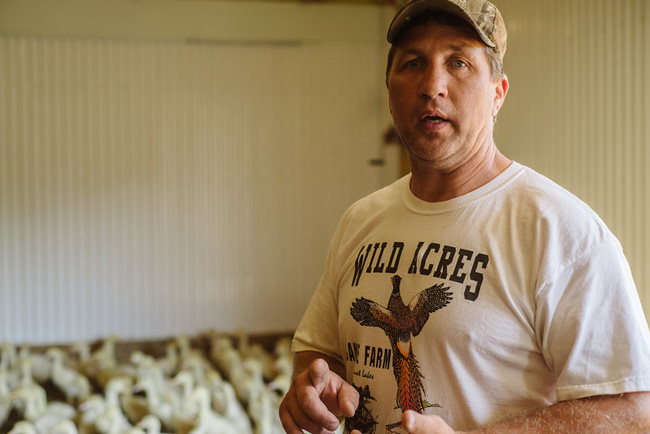
Wild Acres raises ducks year round. The birds are sorted according to the week they were born.
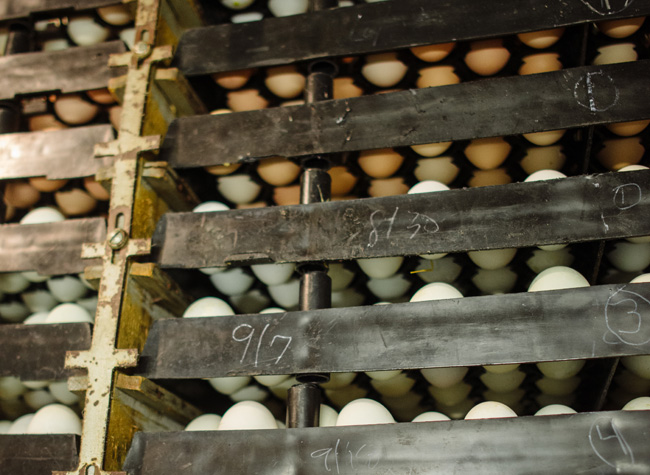
The farm harvests and hatches its own eggs.
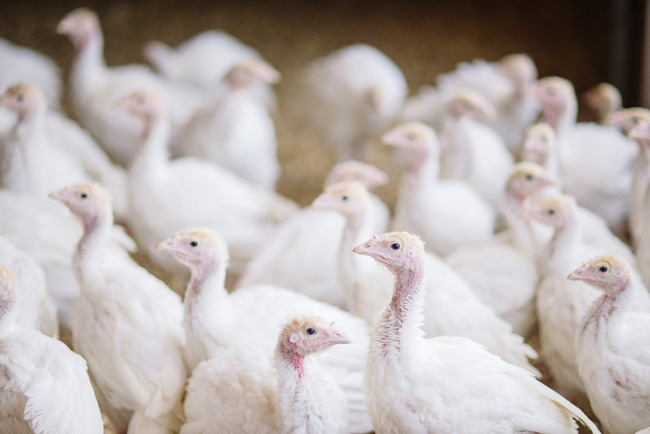
This time of year, turkeys take up a lot of space and time on the farm.
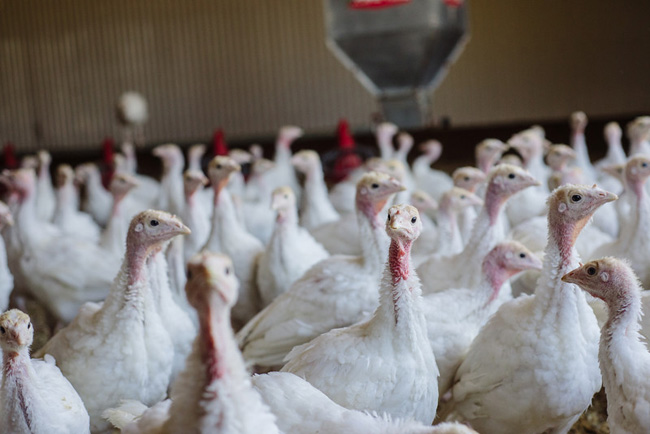
Turkeys are raised year round. Their meat is distributed smoked, ground, and fresh.
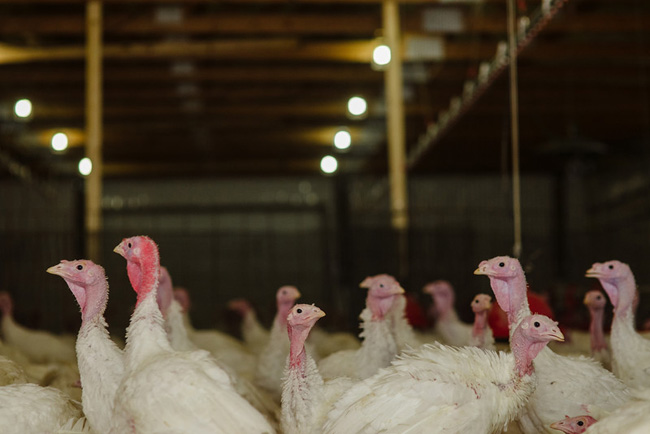
Wild Acres delivered 28,000 lbs. of turkey last year. Ebnet sometimes get calls on Thanksgiving morning asking for advice on cooking turkey. His birds tend to cook more quickly than conventional ones.
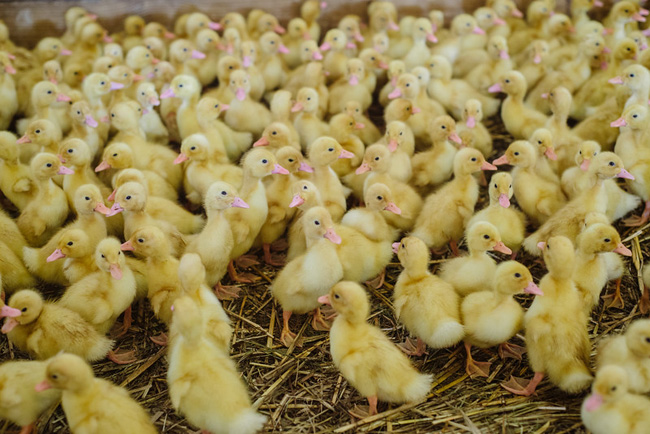
This flock of ducklings was only a day old. There were about 900 ducklings in this hatch.
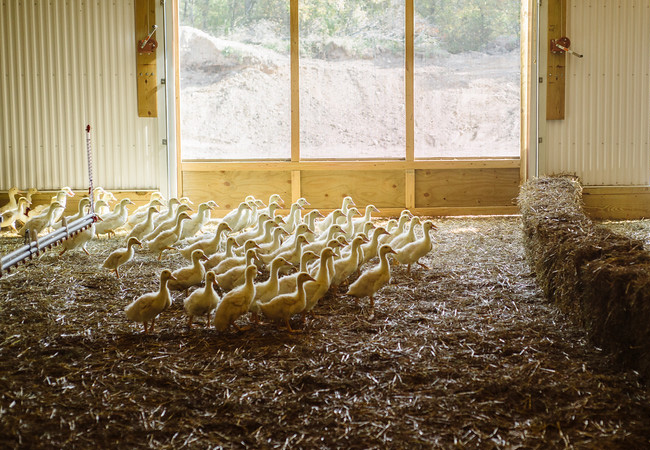
Ducks mature in seven to eight weeks.
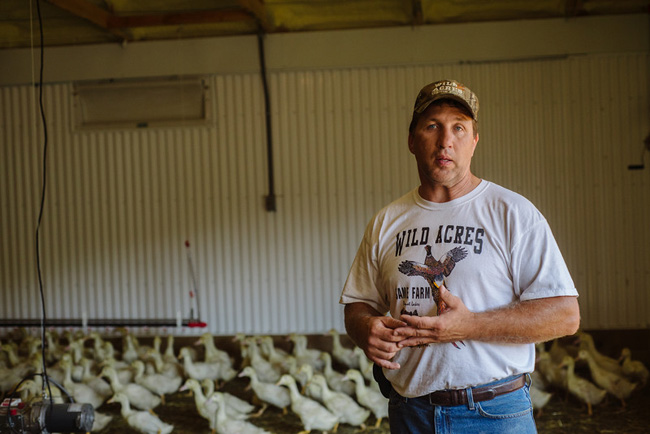
Ebnet’s secret to cooking duck comes from Chef Tim Anderson. Anderson taught Ebnet’s wife, Kelli, to get a saute pan “screaming hot,” place the duck skin-side down, and saute it until it becomes a dark tan. The duck is finished skin-side up on a sheet pan in a 325º oven for six to eight minutes, and then taken out and allowed to rest for 10 minutes.
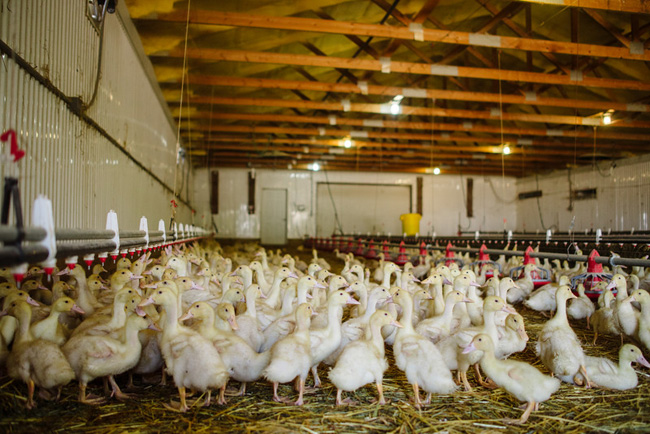
Duck sales have taken off in the last six years, says Ebnet, particularly as the price of beef has risen.
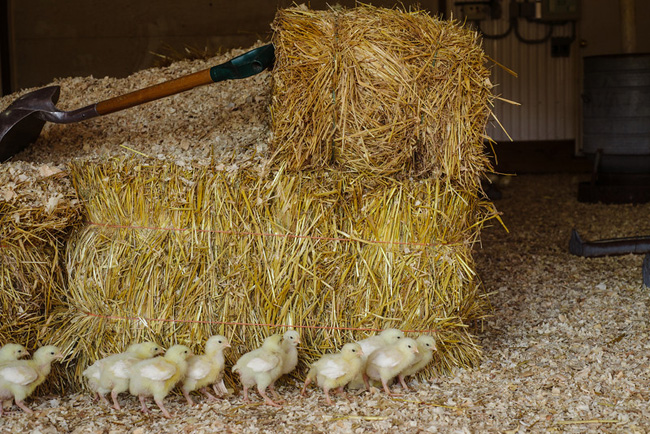
Chickens are started every two weeks and are hatched in large batches. These chickens are around a week old.
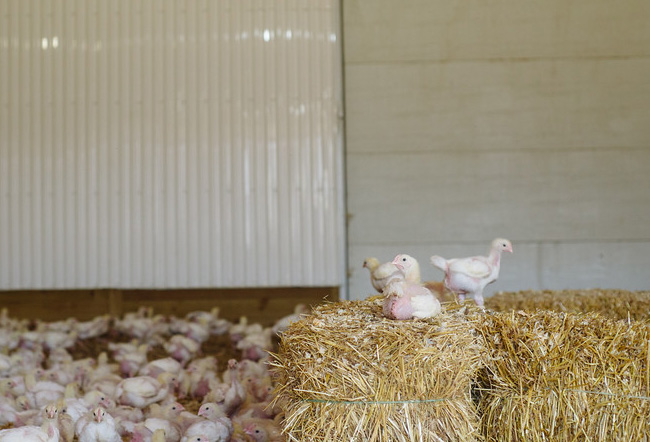
Chickens are selected by hand so that they are the right size for each customer.
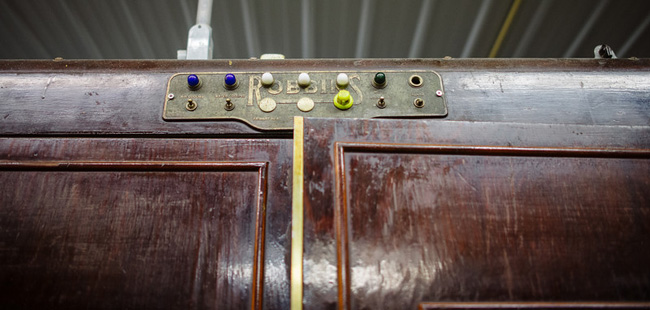
This incubating cabinet (a “Robbin”) from the early 1900s is used to hatch eggs each week.
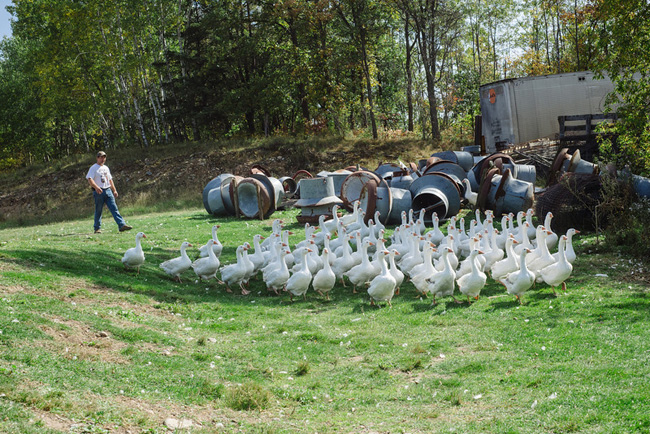
Ebnet walks with the geese flock on the farm. Besides being used for meat, geese keep the lawn under control.
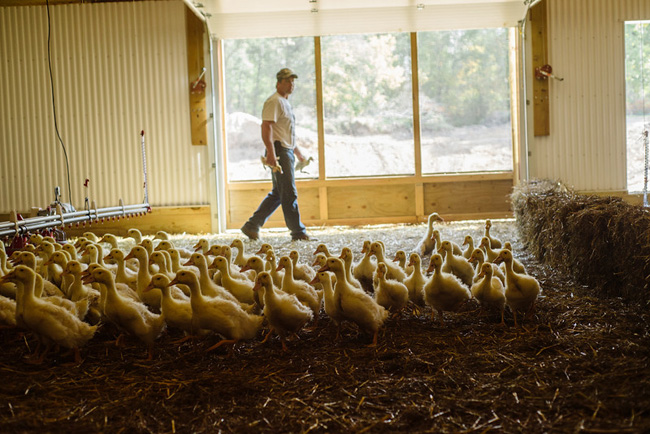
Some of the younger ducks moved in with the older ducks, so Ebnet had to hand sort them.
